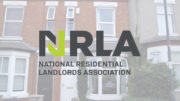Landlord licensing is a considerable source of income for some local authorities. It is demanded by tenant action groups. But does licensing really raise standards, ask Sharon Betton?
In my professional life, I have worked extensively with landlords in the private sector. I went through Accreditation with them and the efforts of my local authority to engage them, adding to their accountability. We then had the requirements of Licensing. More daunting than Accreditation, landlords with certain types of property were required to license each unit of accommodation they owned; in the area I worked in, this cost in the region of £600 a property, a not inconsiderable sum when first introduced in April 2006, following the Housing Act 2004.
Properties with five or more tenants, living as separate households, generally required a license. To be fair to local authorities, they publicised the licensing requirements widely and gave dates by when it would be operative. But landlords generally lead busy lives and a few missed the licensing date and penalties were heavy.
I was never really sure (as a local authority employee) how I felt about licensing. Whilst I was aware of some landlords who really were not a credit to the profession, one of the landlords who missed the licensing date was a very good landlord, there had never been any complaints made about him, but he was still forced to license and had to pay a hefty fine. I am sure he did not forget again, but it left a sour taste in his mouth when he had to deal with the local authority. It did not make sense to me that good landlords should have a stick used against them, whilst other landlords whose practices were reprehensible, seemed to escape scot-free, keeping tenant numbers under five.
I think you may have guessed that I am not a fan of more bureaucracy for the landlords who are providing much needed homes, so I was not impressed to read that private landlords in Salford were having to face even more licensing. Additional HMO (Houses in Multiple Occupation) Licensing will be introduced from July. Justification for this was that 90 per cent of properties with three or four unrelated tenants that were inspected in 2020 failed fire safety standards, with many being damp and with inadequate heating. This sounds appalling, especially so since Salford has two universities and is therefore home to many young people, some of whom have not lived on their own before. It is concerning as Salford’s reputation rests on landlords who have prompted the need for additional licensing.
Without knowing the full facts, it is difficult to give a fair judgement. Had landlords not provided the means to heat the property adequately? Was the dampness due to the structure or condensation? Were the inspected properties inspected due to tenant complaints? Salford’s licensing scheme supporters argue that licensing has raised standards and cracked down on ‘rogue landlords’. They follow it up by saying most landlords, when aware of the problems, carried out repairs. The ‘rogues’ who didn’t numbered only 21.
Properties should be fit to live in; repairs and improvements should be made; but tenants need to advise the landlord of the issues, which it seems would result in most landlords doing the repairs. I hope additional HMO Licensing does improve standards, but I am sceptical that every property in Salford with five or more tenants is now licensed. There will always be the landlords who seem to keep under the radar. I can’t help but think that the licensing fees paid for these smaller properties will keep some people in work whilst exerting financial hardship on landlords.







